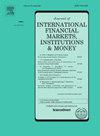Do U.S. Institutional investors react to international politics?
IF 6.1
2区 经济学
Q1 BUSINESS, FINANCE
Journal of International Financial Markets Institutions & Money
Pub Date : 2025-04-06
DOI:10.1016/j.intfin.2025.102160
引用次数: 0
Abstract
This study explores whether foreign policy disagreements with the United States affect overseas portfolio investment decisions of U.S. institutional investors. Employing bilateral disagreement measures derived from contrasting voting decisions at the United Nations (UN) General Assembly, we find strong empirical evidence affirming this connection. We find a drop in U.S. institutional ownership in non-U.S. firms if the country they are listed in undergoes a downturn in their political relations with the U.S. Furthermore, our research unveils that this reduced U.S. institutional ownership primarily originates from investors’ reluctance to allocate capital to firms generating operating income in the U.S. Our results are further substantiated through Difference-in-Differences analyses centered around France and Germany’s opposition to the U.S.-initiated Iraq incursion in January 2003. Firms based in France and Germany experience a reduction in U.S. institutional holdings, accompanied by a decline in analyst earnings per share (EPS) forecasts. Lastly, we find that political tensions between the U.S. and a foreign nation negatively impact the valuation of firms based in that foreign country, with this effect primarily driven by divestment actions undertaken by U.S. institutional investors.
美国机构投资者对国际政治有何反应?
本研究探讨与美国的外交政策分歧是否会影响美国机构投资者的海外证券投资决策。采用来自联合国大会上对比投票决定的双边分歧措施,我们发现强有力的经验证据肯定了这种联系。我们发现,美国机构在非美国机构中的持股比例有所下降。此外,我们的研究表明,这种减少的美国机构所有权主要源于投资者不愿将资本分配给在美国产生营业收入的公司。我们的结果通过以法国和德国反对美国发起的伊拉克入侵为中心的差异分析得到进一步证实。总部位于法国和德国的公司在美国的机构持股减少,同时分析师对每股收益(EPS)的预测也有所下降。最后,我们发现美国与外国之间的政治紧张关系对外国公司的估值产生了负面影响,这种影响主要是由美国机构投资者采取的撤资行动推动的。
本文章由计算机程序翻译,如有差异,请以英文原文为准。
求助全文
约1分钟内获得全文
求助全文
来源期刊
CiteScore
6.60
自引率
10.00%
发文量
142
期刊介绍:
International trade, financing and investments, and the related cash and credit transactions, have grown at an extremely rapid pace in recent years. The international monetary system has continued to evolve to accommodate the need for foreign-currency denominated transactions and in the process has provided opportunities for its ongoing observation and study. The purpose of the Journal of International Financial Markets, Institutions & Money is to publish rigorous, original articles dealing with the international aspects of financial markets, institutions and money. Theoretical/conceptual and empirical papers providing meaningful insights into the subject areas will be considered. The following topic areas, although not exhaustive, are representative of the coverage in this Journal. • International financial markets • International securities markets • Foreign exchange markets • Eurocurrency markets • International syndications • Term structures of Eurocurrency rates • Determination of exchange rates • Information, speculation and parity • Forward rates and swaps • International payment mechanisms • International commercial banking; • International investment banking • Central bank intervention • International monetary systems • Balance of payments.

 求助内容:
求助内容: 应助结果提醒方式:
应助结果提醒方式:


